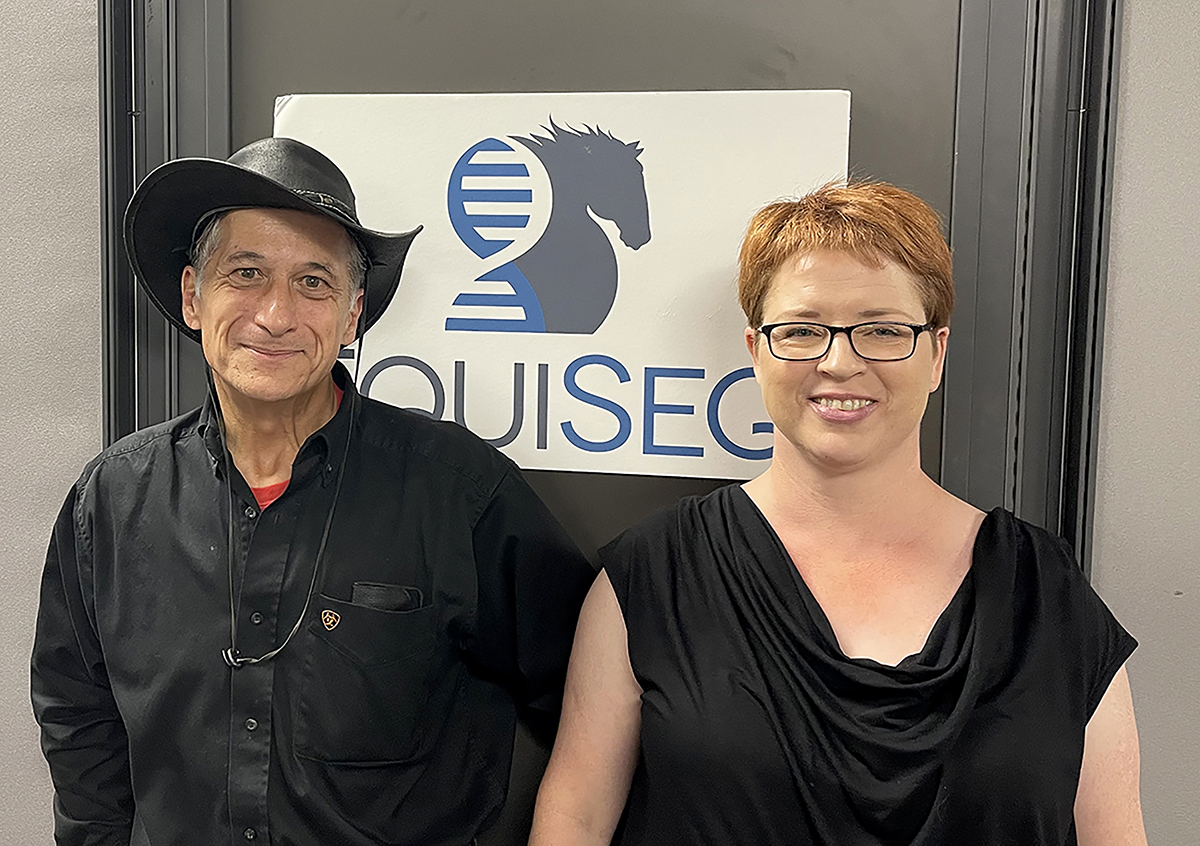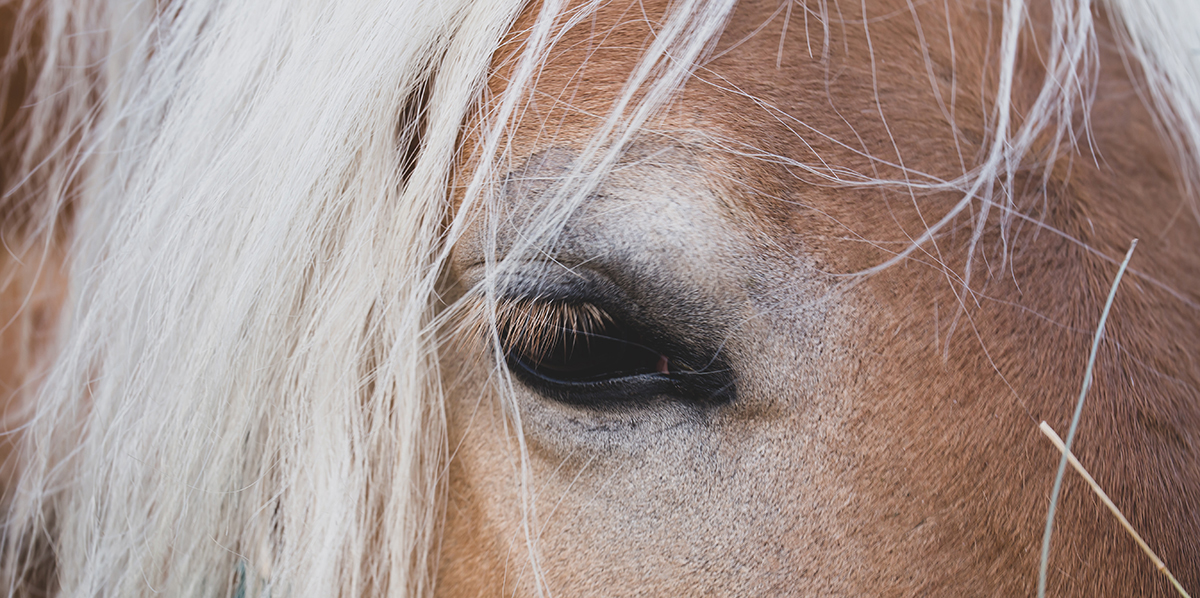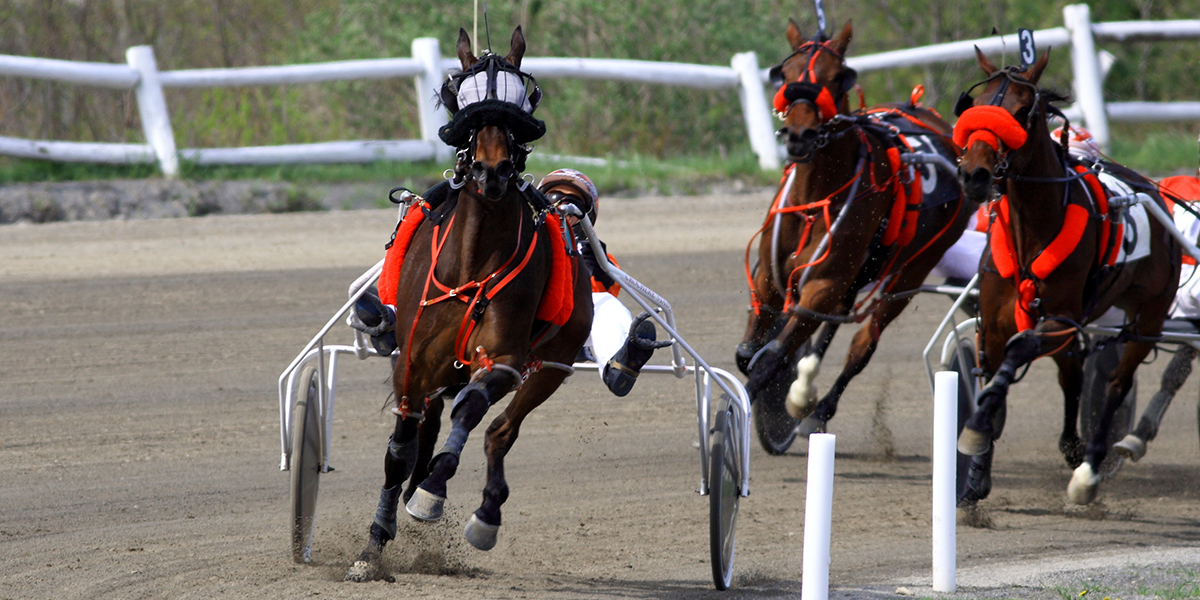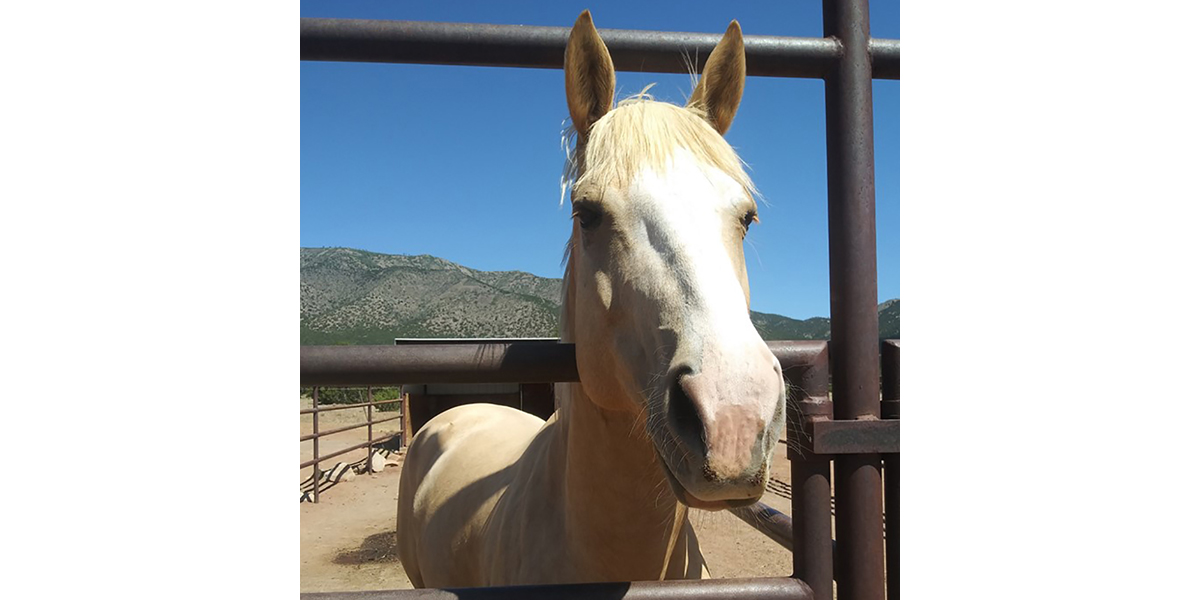Our blog
Resources and insights
The latest industry news, interviews, technologies, and resources.
Blog categories
News
Canada issues patent on EquiSeq DNA tests
ALBUQUERQUE, NEW MEXICO EquiSeq announced today that Canada has issued a patent on EquiSeq’s DNA tests for three genetic variants in horses that predispose to muscle disease. The tests are part of EquiSeq’s current DNA panel. Test results allow horse owners to better manage affected horses, and can be used to improve a breeding program to reduce the incidence of muscle disease.This is the first patent issued to EquiSeq. The same patent remains pending before patent examiners in Australia, New Zealand, South Africa, the European Union, and the United States. A second patent is pending in the same countries.Generatio GmbH performs EquiSeq’s DNA tests for the European Union and United Kingdom, while EquiSeq performs genetic testing for horse owners in the United States and the rest of the world outside of the EU and UK.
News
Generatio Scientist Visits EquiSeq
Dr. Melissa Cox, a scientist at Generatio, visited with Chief Scientific Officer Dr. Paul Szauter at EquiSeq’s office in Albuquerque. Dr. Cox was visiting for a friend’s wedding, and made time for a two-hour discussion of scientific work at Generatio GmbH. Dr. Cox reviewed the results of a survey of horse owners exploring symptoms in over 2,000 tested horses. A first analysis of the results appeared to show a statistical association of most of the variants with particular symptoms. With additional work, this study is expected to be ready for peer review in early 2024. Drs. Cox and Szauter also discussed ongoing work at EquiSeq using cell culture, a yeast assay, and experiments in zebrafish aimed at discovering the effects of specific variants on the proteins encoded by COL6A3, MYOZ3, PYROXD1, and FLNC. The meeting was a reunion for the two scientists, who overlapped at The Jackson Laboratory years ago. When EquiSeq began marketing its tests, Dr. Cox reached out about the possibility of licensing EquiSeq’s genetic tests. The conversation moved from email to a first phone call, where the two discovered that they had both been employed at The Jackson Laboratory at the same time. Dr. Cox recalled attended…
News
Free Testing for Standardbreds and Haflingers
Albuquerque, New Mexico A collaborative research team assembled by researchers at EquiSeq will end its offer of free testing for Standardbreds and Haflingers on March 31, 2023. The project is aimed at studying the K1 variant of COL6A3, which is present in high frequency in these breeds. The K1 variant affects the structure of collagen in muscle tissue. Collagen is part of the connective tissue that surrounds muscle fibers. Human patients with similar mutations have a myopathy called COL VI-related dystrophy. The K1 variant affects the organization of connective tissue in a cell culture assay, as reported by Chief Scientific Officer Paul Szauter at the 20th Anniversary Symposium of the Genome Sciences Department at the University of Washington in November 2022. Kirsten Dimmler, formerly a Bioinformatics Analyst at EquiSeq and now a graduate student with Dr. Molly McCue at the University of Minnesota, reported additional findings at the Plant and Animal Genomes conference in January 2023. The free testing program is open to all Standardbreds and Haflingers in the United States. Horse owners seeking testing will receive a consent form and hair sample pack by mail. To participate, send an email to contact@EquiSeq.com with the number of Standardbreds or Haflingers you…
News
Paul Szauter Invited to Speak at Genome Sciences Symposium
Seattle, WA Paul Szauter, EquiSeq’s Chief Scientific Officer, has been invited to speak at the Genome Sciences 20th Anniversary Symposium at the University of Washington in Seattle. The Symposium will be held November 10 – 11; the schedule includes presentations by Bill Gates, Francis Collins, George Church, and Genome Sciences Chair Robert Waterston. Dr. Szauter received his PhD in Genetics from the University of Washington in 1980. Following an academic career as a Drosophila geneticist, he made a career transition to mammalian genomics and bioinformatics at The Jackson Laboratory in 2000. In 2011, he moved to New Mexico, where he worked at the University of New Mexico before entering the private sector in 2014. He founded EquiSeq in 2015. Dr. Szauter will present current research on the genetics of exercise intolerance in horses, including new results on COL6A3 and MYOZ3. The presentation, scheduled for 3:50 pm Pacific time on November 11, will be livestreamed on Zoom.
News
Free Testing Expands Standardbred Genetics Research
Albuquerque, New Mexico EquiSeq has expanded its research program on the genetics of Standardbreds by offering free testing to owners of purebred horses. Standardbred owners in the United States can receive EquiSeq’s Myopathy Panel at no cost. Standardbred owners received consent forms and sample kits beginning in December 2021, expanding an earlier survey of the breed. Cumulative data on over 75 Standardbreds show that the breed appears to be free of the P3 (FLNC), P4 (MYOZ3), and P8 (PYROXD1) genetic variants. Standardbreds have a high incidence of the P2 (MYOT) and K1 (COL6A3) genetic variants. Current research is focused on identifying Standardbreds that are homozygous for the K1 variant (K1/K1). These horses, along with n/K1 horses and n/n controls, will undergo veterinary examinations to increase our understanding of the disease state. Human patients with Bethlem Myopathy or Ullrich Congenital Muscular Dystrophy have comparable mutations in COL6A3. Owners of Standardbreds in the United States can participate in the study by sending an email to EquiSeq’s Chief Scientific Officer, Paul Szauter (pszauter@gmail.com), giving their postal mailing address and the number of Standardbreds that they have. They will receive consent forms and hair sample packs.
News
Connemara Pony PSSM Research Group Partners with Generatio GmbH
Bergen, Norway The Connemara Pony PSSM Research Group is now registered as a DNA Program with Generatio GmbH – Center for Animal Genetics (CAG). The research group is a small international group of knowledgeable Connemara-people independent of any breed society. We are gathering data with the aim to map the prevalence of the genetic variants associated with PSSM1 and PSSM2 within the breed. We are also looking at pedigrees as well as the correlation between the genetic variants and symptoms. By enrolling your pony in this DNA Program you will get the PSSM2 test at a reduced price, but you also agree that the data will be gathered by the group for research purposes. We kindly ask that you provide all known information about the pony in the animal record, such as DOB, parentage, UELN. You may also be asked by the researchers to provide information about symptoms at a later stage. Please note that the pony must be a purebred Connemara to be eligible for participation in the program. Please get in touch with Hild Elisabeth Hoff (PSSM_connemararesearch@hotmail.com) if you have any questions.
News
EquiSeq CEO Departs to Head Circular Genomics
Albuquerque, New Mexico Dr. Alex Hafez, CEO of EquiSeq, left his position in October 2021 to head a new company, Circular Genomics. Circular Genomics uses technology that Dr. Hafez developed in his dissertation research under the direction of Dr. Nikolaus Mellios. On November 30, Circular Genomics closed a $4.5 million investment round that included local venture capital firms Tramway Ventures and Cottonwood Technology Fund, as well as out-of-state venture capital firms and private investors. Circular Genomics is developing diagnostic tests for psychiatric disorders using circular RNA. Circular RNA is a recently discovered form of RNA that can serve as a biomarker in diagnostic tests. The company’s first target is depression, a disorder that affects tens of millions of Americans every year. Dr. Hafez served as EquiSeq’s CEO from February 2018 through October 2021. Under his direction, EquiSeq added new genetic tests to its Myopathy Panel, signed a licensing deal with Generatio GmbH – Center for Animal Genetics, and filed an additional patent application. The company also increased its research efforts by establishing collaborations with university researchers around the world. Dr. Paul Szauter, EquiSeq’s founder and Chief Scientific Officer, assumed the position of Acting CEO during a search for a successor. Hafez remained on…
News
EquiSeq and Haw Creek Animal Hospital Raise $10,000 for Wilderwood Equine Therapy and Rescue
Peralta, New Mexico Paul Szauter, EquiSeq’s Chief Scientific Officer, attended an event at Wilderwood Equine Therapy and Rescue on October 30, to present Wilderwood with a donation from EquiSeq toward their equine therapy program. EquiSeq and Haw Creek Animal Hospital staged a joint fundraiser that raised $10,000 for Wilderwood. Wilderwood’s equine-assisted programs are an innovative and integrative approach designed for autistic adults and children (aged 8 and up) to strengthen authentic self-perception, self-possibility, and self-realization through mind/body interoceptive and somatic understanding combined with the philosophy of Hautism, which embraces and celebrates the innate connection between horses and autistic people. Wilderwood also rescues unwanted horses, provides them a lifetime loving home, and educates the community about horses and autism. Wilderwood adopted Lady Faith from EquiSeq. Lady Faith is n/K1 and free of other variants. She is the mare in which the K1 allele of COL6A3 was discovered by whole-genome sequencing.
News
EquiSeq and Haw Creek Animal Hospital Join Fundraiser for Wilderwood Equine Therapy and Rescue
Albuquerque, New Mexico EquiSeq and Haw Creek Animal Hospital will join a charity fundraising effort for Wilderwood Equine Therapy and Rescue. EquiSeq will donate 10% of sales for the entire month of September 2021 to Wilderwood. Haw Creek Animal Hospital, in Asheville, North Carolina, stages a Labor Day Charity fundraiser every year, and this year will donate to Wilderwood from Labor Day sales. Wilderwood’s equine-assisted programs are an innovative and integrative approach designed for autistic adults and children (aged 8 and up) to strengthen authentic self-perception, self-possibility, and self-realization through mind/body interoceptive and somatic understanding combined with the philosophy of Hautism, which embraces and celebrates the innate connection between horses and autistic people. Wilderwood also rescues unwanted horses, provides them a lifetime loving home, and educates the community about horses and autism. EquiSeq became aware of Wilderwood when the charity agreed to adopt Lady Faith, a horse that has been part of EquiSeq’s research program for several years. Please watch this outstanding video about Wilderwood. Anyone wishing to donate to Wilderwood can reach out directly. Donations are tax-deductible. EquiSeq and Haw Creek Animal Hospital will publicly disclose their combined charity donation before the end of October.
News
German Warmblood Associations Include Testing for EquiSeq Genetic Variants in Genotyping Platform
Albuquerque, New Mexico The International Association of Future Horse Breeding (IAFH), a group of five German Warmblood associations, has developed a large-scale genotyping platform (a SNP array) for breed improvement. They have added tests for the variants in EquiSeq’s Myopathy Panel to the array. Results will be available to horse owners through Generatio GmbH – Center for Animal Genetics, which holds the exclusive license for EquiSeq’s tests in the EU and the UK. Below is a translation of their press release. Horse breeders have health in mind The health of the riding horses is important for every breeder. The International Association of Future Horse Breeding (IAFH) is dedicated to it. The focus is also on hereditary diseases such as PSSM2. The IAFH provides fundamental scientific work that leads to breeding measures to ensure the health of horses in the future. With the availability of differentiated molecular genetic laboratory analysis, the possibilities to assess the genetic predisposition of individual horses are growing. This applies to all characteristics that have been influenced by hereditary factors in their form, regardless of whether they follow simple or complex inheritances and whether they relate to performance, appearance, or health. Especially for the monitoring of hereditary diseases,…
News
Canada issues patent on EquiSeq DNA tests
ALBUQUERQUE, NEW MEXICO EquiSeq announced today that Canada has issued a patent on…
News
Generatio Scientist Visits EquiSeq
Dr. Melissa Cox, a scientist at Generatio, visited with Chief Scientific Officer Dr….
News
Free Testing for Standardbreds and Haflingers
Albuquerque, New Mexico A collaborative research team assembled by researchers at EquiSeq will…
News
Paul Szauter Invited to Speak at Genome Sciences Symposium
Seattle, WA Paul Szauter, EquiSeq’s Chief Scientific Officer, has been invited to speak…
News
Free Testing Expands Standardbred Genetics Research
Albuquerque, New Mexico EquiSeq has expanded its research program on the genetics of…
News
Connemara Pony PSSM Research Group Partners with Generatio GmbH
Bergen, Norway The Connemara Pony PSSM Research Group is now registered as a…
News
EquiSeq CEO Departs to Head Circular Genomics
Albuquerque, New Mexico Dr. Alex Hafez, CEO of EquiSeq, left his position in…
News
EquiSeq and Haw Creek Animal Hospital Raise $10,000 for Wilderwood Equine Therapy and Rescue
Peralta, New Mexico Paul Szauter, EquiSeq’s Chief Scientific Officer, attended an event at Wilderwood…
News
EquiSeq and Haw Creek Animal Hospital Join Fundraiser for Wilderwood Equine Therapy and Rescue
Albuquerque, New Mexico EquiSeq and Haw Creek Animal Hospital will join a charity fundraising effort…
News
German Warmblood Associations Include Testing for EquiSeq Genetic Variants in Genotyping Platform
Albuquerque, New Mexico The International Association of Future Horse Breeding (IAFH), a group…







